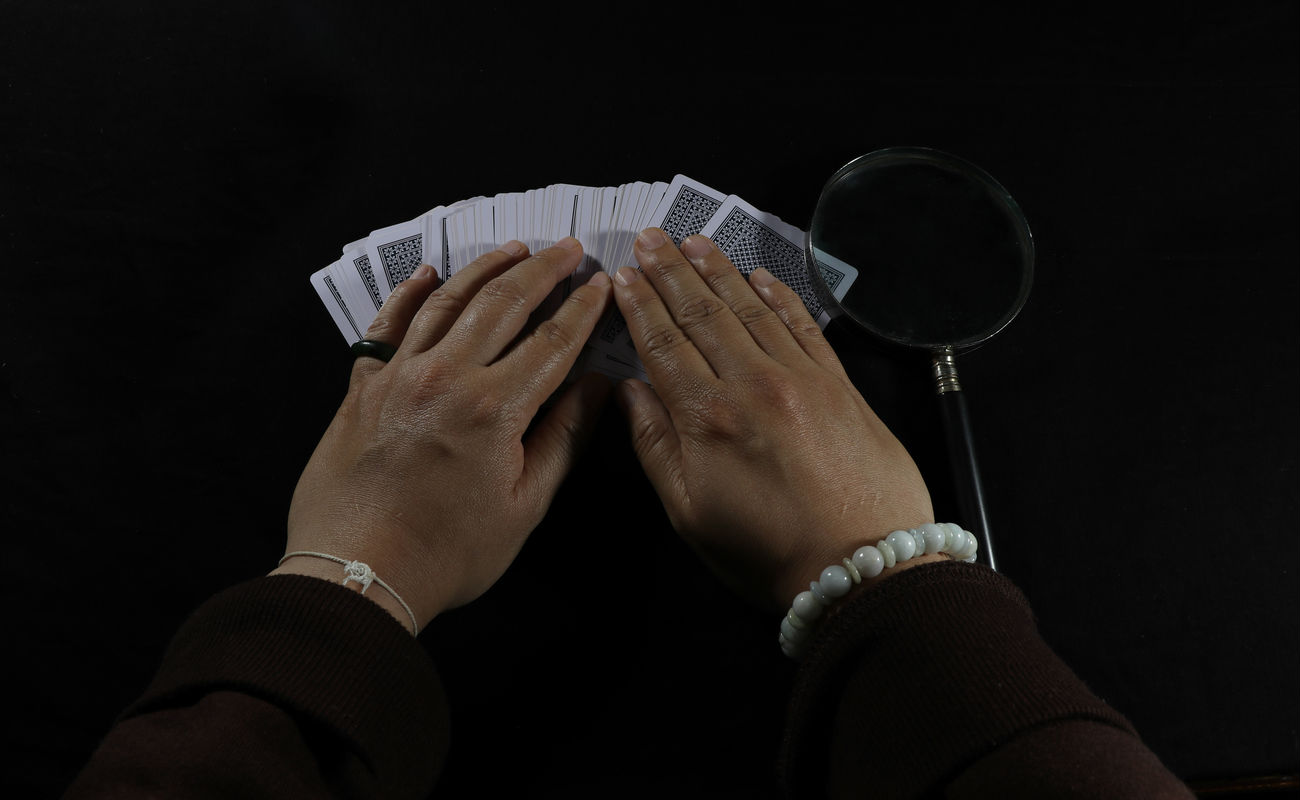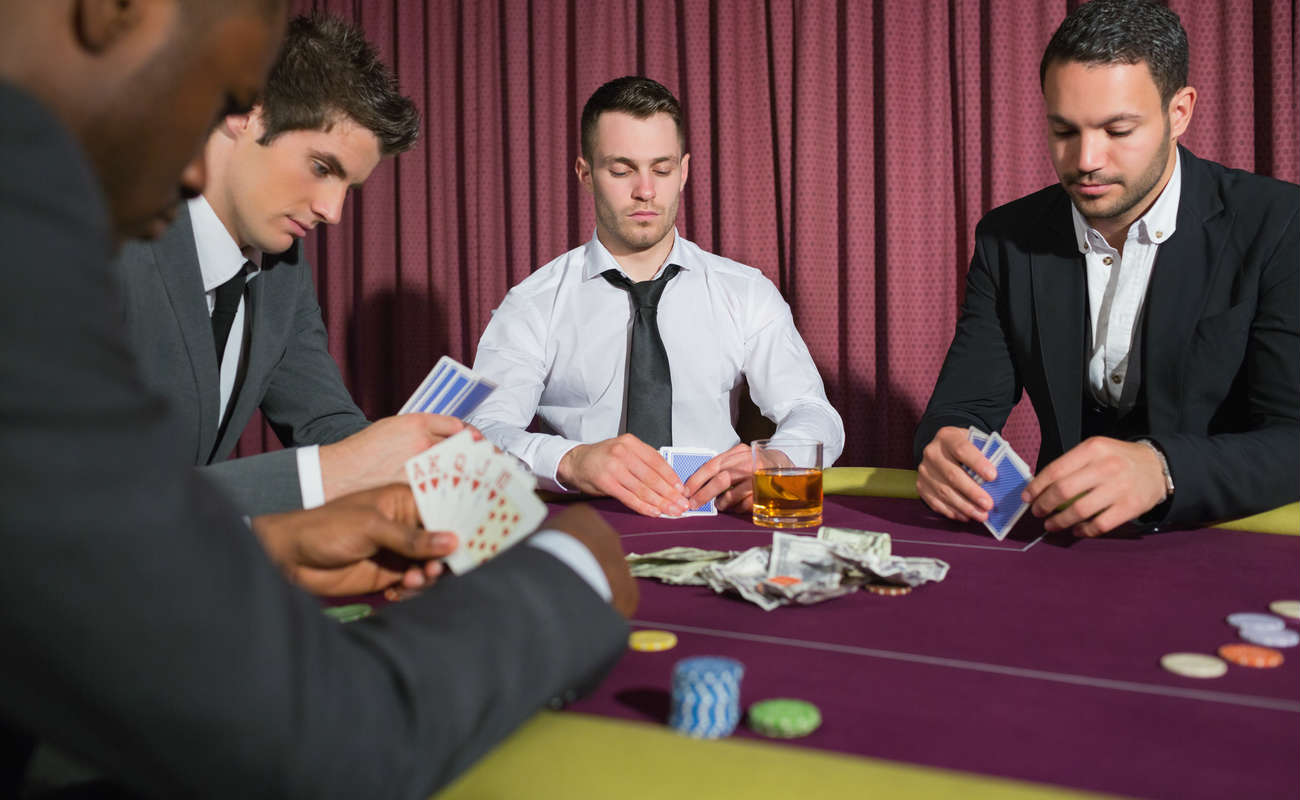Poker is a fascinating pastime; to some, it’s nothing more than a game, to others, it’s a carefully considered art form that relies on a perfect balance of luck, skill, and strategy. It’s a game that is said to have been in existence for centuries, and yet, still incites passionate debate: is it primarily governed by chance or skill?
Many believe that knowing how to win poker tournaments is all about skill, but there’s undoubtedly a modicum of both luck and skill involved in any poker game – online or in person. This is where poker hand reading comes in, and we’ve put together a quick guide to help you get the competitive edge.
Understanding the roles of luck and skill in poker
As a beginner (or a “fish”, as beginners are often called), it’s encouraging to know that whether you’re playing poker online or on the felt, you aren’t completely at the mercy of the gods of luck. Instead, you’re able to cultivate your poker skills over time — it simply calls for patience, practice, and powers of deduction.
If you’re looking for poker tips to strengthen your game and would like to know how to win real money during online poker, then you need to learn how to master the art of hand reading, a must-have skill for both live and online poker games.
What is poker hand reading?

Hand reading, or hand ranging, is widely regarded as the number one poker skill and refers to the process of determining the possible combinations of cards (or range) an opponent is holding. It isn’t about trying to figure out exactly what your opponent’s hand is — that’s virtually impossible — it’s about calculating the possibilities and probabilities. Once you have an idea of what range your opponent might be holding, you can make educated guesses about how they might play. Based on this information, you’ll then be able to calculate how best to play your hand.
Reading an opponent in real life is often easier than when playing video poker online. When you’re standing in front of someone, you’re able to pick up on physical tells. But by having a firm understanding of the rules of the game, carefully observing your opponent’s behavior, and using that information to make educated guesses, you will figure out quite quickly how to win poker tournaments both when you play poker online and live.
As a fish, you might be inclined to try online poker just to get a feel for how it works. Without knowing too many of the poker tips and tricks, you might react in a game based solely on your hand and the cards on the board. But by doing this, you aren’t making the most of the information available to you.
A professional player considers all possibilities as well as what type of player their opponent is, their position at the table, the actions they’ve already taken, stack sizes, pot size, possible future cards, and tournament conditions, along with many other data points.
Don’t be overwhelmed by that information, however. The basic principle of hand reading is simple: the more information you can garner about your opponents and how they play at each stage of a game, the better informed your decisions can be, and the greater your chances of winning. So the quicker you can master hand reading, the better.
The process starts pre-flop

So where do you start? After playing a few rounds with an opponent, you’ll start noticing certain patterns about how they play. These will help you to determine what type of player your opponent is — are they loose or tight? A tight player (known to fold more often than they play), for example, tends to have smaller ranges if they stay in the game, so this provides you with a great starting point.
Once you understand the type of player you’re up against, you’ve already got one bit of information you can use to better calculate their range. The hand reading process starts pre-flop and ranges get smaller with each stage of betting as you move through the streets (in other words, as you move towards the river).
There are a few other things you can ask yourself in the pre-flop phase. Here are some of them:
- Why did they take that certain action? (Why did they call and not raise/fold?)
- What does that action tell me about their possible range? (Was it confident or passive?)
- And what ranges can we eliminate based on that? Strong hands don’t lead to passive actions, so maybe some of the stronger hands can be taken out of the equation.
- Have you played against your opponent before? And if so, what do you know about them and their actions that can be helpful?
One of the most basic poker tips is to ensure that you’re able to quickly familiarize yourself with the community cards and the types of hands in poker. You want to be able to immediately figure out the best possible hands on any given straight. Once you’ve honed that skill, the next step is to determine how likely your opponent is to have any of those combinations.
To narrow down the range an opponent might have, it helps to think of their hand being made up of pocket pairs, Broadway hands, Aces, Suited hands, and off-suit hands. With that in mind, ask yourself: what is the worst hand they could play and what are a few good hands?
The sizes of your opponent’s bets matter

Another one of our top poker tips? When it comes to betting – observe closely. The size of your opponent’s bet can give you some valuable information. The bet size is usually carefully considered by players, so you need to try and determine what the motivation behind your opponent’s decision is — do they raise pre-flop, then check on the flop, and if so, what does it mean? Generally, the larger the bet, the stronger the hand (and therefore, the range) so watch carefully and make a note of these subtleties.
You’ll reassess your opponent’s range through the streets
Once you’ve established a pre-flop range, you’ll be better equipped to read your opponent’s hands through the streets. As the game unfolds, you’ll constantly have to re-evaluate your opponent’s actions at each stage, which will help you remove possible hands from the range based on the established opponent data. Remember, if you’re doing it right, ranges only ever get smaller, not bigger. Just keep watching their actions and ask yourself what hand they could be basing their decisions on.
There are three main stages of the hand reading process
To recap, this is what a distilled version of the hand reading process looks like for a game of poker:
- You deduce a pre-flop range based on your opponent’s first actions (regarding their initial bets).
- As the game moves from flop to turn to river, you’re better able to narrow the range further based on your opponent’s actions. How? By taking away possible combinations that don’t fit with your opponent’s decisions.
- You then use the information you have on your opponent and their possible range to play your hand accordingly.
Hand rankings and probability
Of course, to read hands you’ll need to have a thorough understanding of the hands themselves and their rankings. Below you’ll find the Texas Hold’em hands ranked from best to worst:
| Rank | Hand Name | Description | Probability | Combinations |
| 1 | Royal flush | Made out of a 10, Jack, Queen, King, and Ace, all of the same suit. | 1 in
649, 737 |
4 |
| 2 | Straight flush | Five cards of sequential value, all in the same suit. | 1 in 72,193 | 36 |
| 3 | Four of a kind | The same card in each of the four suits. | 1 in 4,164 | 624 |
| 4 | Full house | A pair plus three of a kind in the same hand. | 1 in 693 | 3,744 |
| 5 | Flush | Five cards in the same suit, not in numerical order. | 1 in 508 | 5,108 |
| 6 | Straight | Five cards in sequential numerical order, of varying suits. | 1 in 253 | 10,200 |
| 7 | Three of a kind | Three of one card and two non-paired cards. | 1 in 46 | 54,912 |
| 8 | Two pair | Two different pairings or sets of the same card in one hand. | 1 in 20 | 123,552 |
| 9 | One pair | A pairing of the same card. | 1 in 1.36 | 1,098,240 |
| 10 | High card | A hand with no matching cards. The highest card is your “best hand”. | 1 in 0.99 | 1,302,540 |
Play the best online poker at BetMGM

The better you are at hand reading, the higher your chances of winning. Initially, the concept might seem like hocus-pocus, but it actually comes down to simple math. As you practice, you’ll learn more about how to calculate what range your opponent has. It takes practice to make progress and the more you do so, the more confident you’ll be.
So if you’re ready to start putting hand reading to the test by playing online poker for money then head over to BetMGM. Here you can play poker online, as well as a wide range of other online casino games, and start honing your hand reading skills. Register with BetMGM.










